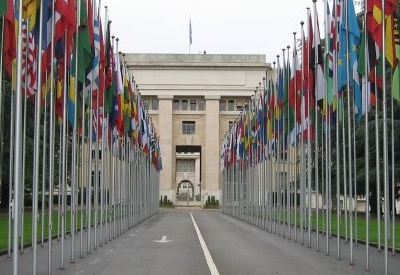Tibet flying under the radar in 2020
 |
| Eleanor Moseman (photo) : Tibetan health care workers in Garze L.A. Times 2020 |
The South China Sea remains a flash point in southeast Asia where China has continued to militarize islets i.e. The Spratley and Paracel Islands, while having to manage with Carrie Lam and Hong Kong officials the student protests that plagued Hong Kong through last summer (2019) and into the Autumn period. Having seen that issue settle some-what, the central government was preoccupied with the Taiwanese election in January 2020, which Tsai Ing - wen won handily through the Democratic Progressive Party (DPP) that prefer the status quo as an independent nation that is capitalist and free market in every respect: human rights that Taiwanese have come to accept, promote, and respect. Now, the central government was not prepared to deal with the COVID -19 crisis until it was too late to stave off a pandemic. And so, President Xi is left with quite a lot on his plate to manage and a lot of time on his hands with unlimited term limits. As Tibet is still smouldering with dissent, the crisis has minimalised with the focus shifting somewhat to Xinjiang province where China is facing criticism for the mass incarceration of Islamic members who officials feel need re-education as to not pose a threat to their respective communities. Old habits die hard in China. However, Tibet is quiet in the news cycle with so much going on, on the mainland and the South China Sea. This year has wrought a few changes to international policy that are worth mentioning.
First:
American members in the House approved legislation in January - "The Tibet Policy and Support Act" that establishes a U.S. policy supporting the Tibetan community on choosing a successor to The Dalai Lama without interference from the central government in Beijing. The bill allows for sanctions under the 'Global Magnitsky Act' against China if they interfere in the reincarnation process or selection of the 14th Dalai Lama's successor. In addition, the establishment of a U.S. consulate in Lhasa is part of the legislation. No further Chinese embassies in the U.S. will be approved until the Lhasa American embassy has passed muster.
Chinese Foreign Ministry Spokeswoman Hia Chunying said that the approved legislation sent a wrong message to Tibetan independence supporters while reinforcing the Party line on Tibet that China has helped Tibet achieve "historical progress" through its economy, socially and cultural factors since the invasion over 60 years ago.
It is a positive step for Tibetan culture and history as The Dalai Lama turns 85 years on July 6. Given all of China's current distractions, it will not want another crisis in the future when The Dalai Lama passes as China is facing mounting criticism internationally over their handling of the coronavirus.
Second:
American members in the House approved legislation in January - "The Tibet Policy and Support Act" that establishes a U.S. policy supporting the Tibetan community on choosing a successor to The Dalai Lama without interference from the central government in Beijing. The bill allows for sanctions under the 'Global Magnitsky Act' against China if they interfere in the reincarnation process or selection of the 14th Dalai Lama's successor. In addition, the establishment of a U.S. consulate in Lhasa is part of the legislation. No further Chinese embassies in the U.S. will be approved until the Lhasa American embassy has passed muster.
Chinese Foreign Ministry Spokeswoman Hia Chunying said that the approved legislation sent a wrong message to Tibetan independence supporters while reinforcing the Party line on Tibet that China has helped Tibet achieve "historical progress" through its economy, socially and cultural factors since the invasion over 60 years ago.
It is a positive step for Tibetan culture and history as The Dalai Lama turns 85 years on July 6. Given all of China's current distractions, it will not want another crisis in the future when The Dalai Lama passes as China is facing mounting criticism internationally over their handling of the coronavirus.
Second:
COVID-19. All temples have been closed to contain the spread of the coronavirus.
"I started seeing sanitation vans and hearing propaganda shouted on the loudspeakers. Posters were going up and police checked shops, telling owners to close. Guards blocked entrances to alleys, registering people’s names and IDs whenever anyone passed.The city was slowly shutting down." Su further elaborated about the spiritual implications of eating rare animals "A friend who is a monk sent me a photo of an ancient Tibetan text explaining how humans should not eat bats, which are believed to be the genesis of the coronavirus. There were a number of moments like this: modern-day disease and science mixing with an ancient religion that believes in reincarnation."
Currently, the central government has now banned the sale of illegal wild-life. Will the ban persist when life returns to normal in a post COVID - 19 Sino world, remains to be seen. Su continued concluding her one month visit to The Tibetan Plateau: "Sometimes, I think this area is not ready for all these changes. The Chinese build and change at such a fast rate, it seemed like this area was going to stumble and fall to catch up." "The virus highlighted preexisting cracks in the social structure and medical system: difficulties in accessing healthcare, lack of education, and distrust exacerbated by cultural differences and inability to communicate."
Tibet has devolved into a two tier society between native Tibetans and Han Chinese, that now outnumber the aboriginal Tibetan community. Moseman's pictures indicate Tibetan culture in good stead in certain areas. The closure of temples can be managed more thoughtfully during this period by local religious and government officials collaborating to ensure spiritual matters remain at the forefront during this period. Indeed, just a few years ago officials ordered many elements of Larung Gar closed due to overcrowding. Local officials ought to allow Tibetans during this period to display a picture of The Dalai Lama. Alas, the central government vehemently considers His Holiness "a wolf in sheep's clothes." A separatist.
There are whispers in the international community of nation-states affected by COVID-19 to seek financial retribution from China through legal means. This is entirely appropriate given the loss of life and destruction of their economy. When private citizens suffer ill effects of a defective product or service, a class action lawsuit is launched. This notion can propel nation states to act on their behalf and failing that, it is possible to see an international class action type of lawsuit wending its way to the International Criminal Court at The Hague. Might President Xi Jinping face war crimes charges for the central governments cover up is doubtful, but appropriate to defend the victims. If we are in a war, we can invoke 'Jus Post Bellum' - justice after war, in seeking reparations from China and others who were careless in diagnosing the severity of the coronavirus. Approximating those costs will take years after the pandemic subsides and an accounting system is devised to measure total costs to a nation state and expenses to rebuild. Some nation - states, like Canada are running historical deficits to counter job losses to individuals and loss of pecuniary activity to all business models. Finally, if we invoke, Jus Ad Bellum - the correct criterion for war, the protocol needs to be amended to consider virology. The final cost to human life, infrastructure, and future generations may make The Treaty of Versailles, pale in comparison.
Marco Rubio, a Florida senator, has called on World Health Organization Director - General Tedros Adhanom Ghebreyesus to resign. This seems fair given WHO's inaction in the early stages of the crisis, WHO's curry favouring to Chinese authorities, and WHO blocking much needed important information on the virus requested by Taiwanese officials. Donald Trump has said he will reduce aid to the WHO for these misdemeanours, and whether we agree with Trump's policies, this move is entirely understandable.
For Tibetans and the diaspora, there is some reassurance with the "Tibet Policy and Support Act." America will need to take an expanded role in the South China Sea while China is capitalizing on COVID - 19 and, in particular, its effect on the U.S. Navy.
Works Cited
Su, Alice and Eleanor Moseman. "A Tibetan journey in the time of coronaviru." Los Angeles Times. 5 March 2020. 8 April 2020. <https://www.latimes.com/world-nation/story/2020-03-05/a-tibetan-journey-in-the-time-of-coronavirus>.




